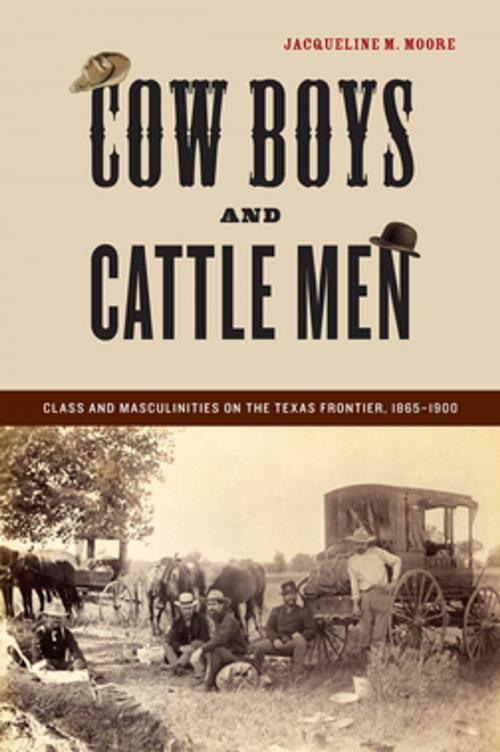Cow Boys and Cattle Men
Class and Masculinities on the Texas Frontier, 1865-1900
Nonfiction, History, Americas, United States, 19th Century| Author: | Jacqueline M. Moore | ISBN: | 9780814757406 |
| Publisher: | NYU Press | Publication: | December 1, 2009 |
| Imprint: | NYU Press | Language: | English |
| Author: | Jacqueline M. Moore |
| ISBN: | 9780814757406 |
| Publisher: | NYU Press |
| Publication: | December 1, 2009 |
| Imprint: | NYU Press |
| Language: | English |
Cowboys are an American legend, but despite ubiquity in history and popular culture, misperceptions abound. Technically, a cowboy worked with cattle, as a ranch hand, while his boss, the cattleman, owned the ranch. Jacqueline M. Moore casts aside romantic and one-dimensional images of cowboys by analyzing the class, gender, and labor histories of ranching in Texas during the second half of the nineteenth century.
As working-class men, cowboys showed their masculinity through their skills at work as well as public displays in town. But what cowboys thought was manly behavior did not always match those ideas of the business-minded cattlemen, who largely absorbed middle-class masculine ideals of restraint. Real men, by these standards, had self-mastery over their impulses and didn’t fight, drink, gamble or consort with "unsavory" women. Moore explores how, in contrast to the mythic image, from the late 1870s on, as the Texas frontier became more settled and the open range disappeared, the real cowboys faced increasing demands from the people around them to rein in the very traits that Americans considered the most masculine.
Published in Cooperation with the William P. Clements Center for Southwest Studies, Southern Methodist University.
Cowboys are an American legend, but despite ubiquity in history and popular culture, misperceptions abound. Technically, a cowboy worked with cattle, as a ranch hand, while his boss, the cattleman, owned the ranch. Jacqueline M. Moore casts aside romantic and one-dimensional images of cowboys by analyzing the class, gender, and labor histories of ranching in Texas during the second half of the nineteenth century.
As working-class men, cowboys showed their masculinity through their skills at work as well as public displays in town. But what cowboys thought was manly behavior did not always match those ideas of the business-minded cattlemen, who largely absorbed middle-class masculine ideals of restraint. Real men, by these standards, had self-mastery over their impulses and didn’t fight, drink, gamble or consort with "unsavory" women. Moore explores how, in contrast to the mythic image, from the late 1870s on, as the Texas frontier became more settled and the open range disappeared, the real cowboys faced increasing demands from the people around them to rein in the very traits that Americans considered the most masculine.
Published in Cooperation with the William P. Clements Center for Southwest Studies, Southern Methodist University.















